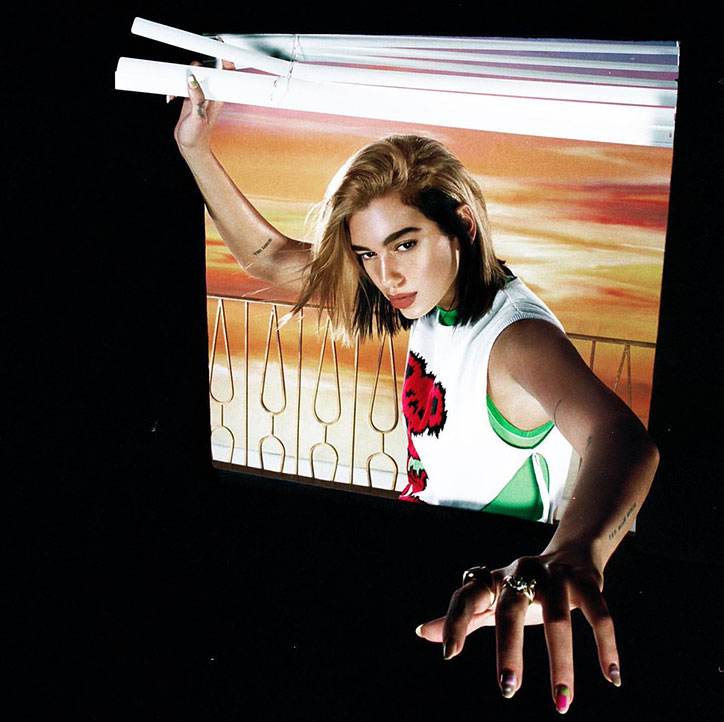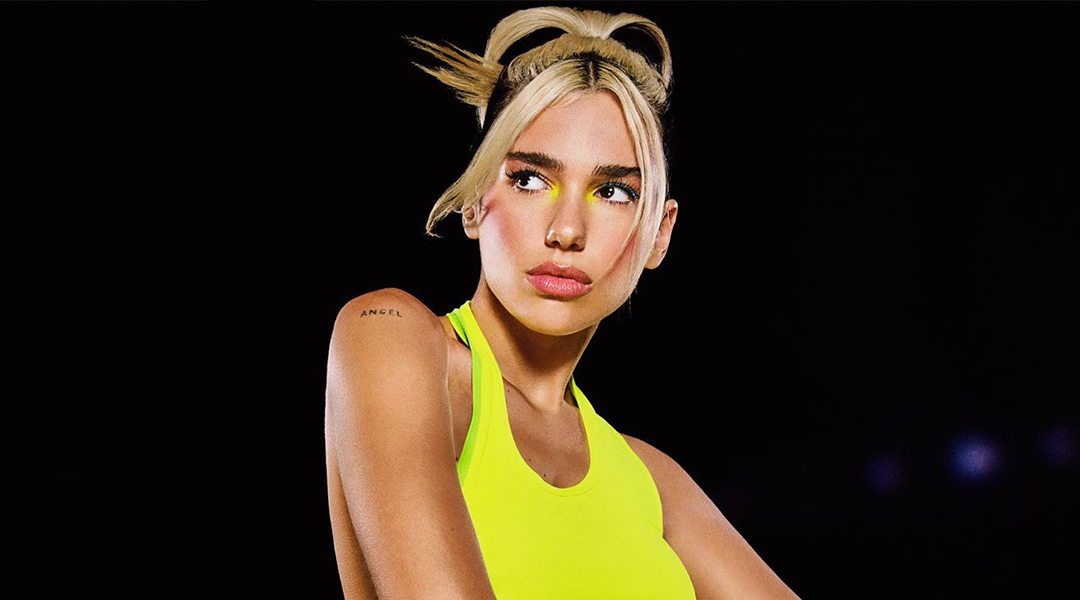All hail Dua Lipa, the Quarantine Queen who is serving a musical saving grace in such an unsettling circumstance with Future Nostalgia, a compelling work of pop that is set to get you dancing.
Related: Robyn Is Here Again: Why Missing U Is The Anthem We Need To Hear Now
In an emotional Instagram live session a few days prior, British pop darling, Dua Lipa, was visibly distraught, desperately trying to temper the tears welling up from her eyes. You see, up until then, it was all systems go for the release of her highly anticipated sophomore effort, Future Nostalgia, on April 3, now intended to be that slice of respite from the world seemingly crumbling and caving to the savage pummeling of Covid-19.

“I’ve been a little bit conflicted about whether it’s the right thing to do during this time because lots of people are suffering,” she says in between a burst of tears and sniffles. By then, word had got out that her album, which she worked hard for, leaked all over the internet in such an unfortunate time. “”I’m not sure if I’m even doing the right thing,” she says, reeling herself to a space of calm, pacifying herself from relenting to the emotions stacking up on her as of late. “But I think the thing we need the most at the moment is music, and we need joy and we need to be trying to see the light. I hope it makes you smile and I hope it makes you dance, and I hope I make you proud.”
Revving the engine of sound with its lead track, Future Nostalgia, a robotic whisper signals the distinct direction Dua Lipa is taking us with this release. Facing forward, eagle-eyed beyond the dashboard with both hands firmly gripped on the steering wheel, the self-confessed female alpha purrs, “You want a timeless song, I wanna change the game,” parlaying to a funk-laced ditty that anchors on a steady staccato that dances in rhythmic ripples across the pond. Far from being an empty promise delivered in a rabid breath, Dua Lipa makes it very clear from the get-go: This is the sound that will define her.
The next few transitions are more familiar, having been released as singles for this new era. Don’t Start Now announces itself immediately with an effervescent fade in akin to a cinematic overture, before fully opening up to a carefree, shoulder-shrugging tongue-lashing that lists the limits of a scorned former flame. The intrusions of disco are well-played, with its references and inspiration sourced out from an evolution of the genre spaced out across decades. Forming the backbone of the album, we are then confronted with a decidedly 80s turn in Cool, a slow cook of a saucy anthem that is a hyper-aware relenting of unexpected and unbridled romance, and Physical, the vibrant and buoyant single that bounces off the walls with its infectious sweat-inducing and aerobics-appropriate swell of synths.
Sauntering with an elastic bass line, syncopated handclaps, and segments of sped up lyrics, Levitating is an electric shift into a mid-tempo, this time in the skin of a geographical signature British pop. In an appropriate turn, the halfway mark runs across as a pared down presence in Pretty Please, where the sensual coos in the written score make for a perfect match with Dua Lipa’s honeyed vocals, backed up by a throbbing bass that grazes with flashes of synth, as if massaging us for the rest of Future Nostalgia’s rip-roaring euphoric force.
Hallucinating, as the name suggests is what an inebriated swing and shimmy on the crowded dance floor would sound like. With a watercolor-like swirl of tones and blinding musical inflections, this disco throwback is that go signal for you to let loose and have a grand ‘ol time. You’ll deal with the hangover later. Then perhaps a standout on the tight and tempestuous track list, Love Again is a nuanced musical journey that strides from the liberated 70s to the gritty 90s, gripping us from the first note with its Star Wars-reminiscent orchestration. “I can’t believe I’m not afraid anymore,” sings Dua Lipa in her signature smoky voice, which isn’t just a conversation of love at this point, but a declaration of independence and confidence as if saying, this is all of me—take it or leave it.
Oh, but we are fully enamored at this point, maybe even more than we imagined possible. She’s got our full attention, now commanding with the robust Break My Heart, a bubbling disco-pop single that dissects choices, further operating as a rhythmic cautionary tale on desire-anchored on-and-off again relationships. “It’s my forte, which is dance-crying. Although this song comes from a happy place, it’s me writing about the fact that I’m in love and I’m so excited and I’m so happy, but I’m like when is it going to go wrong?” she says, describing the song. “It’s kind of a celebration of vulnerability and allowing yourself to feel all these things, not really wanting something to ever have an end to it.”
Rounding out the experience that is Future Nostalgia, Good In Bed is a function of foreplay, a cheerful realization of sound and sensibility in the context of the bedroom, framed naturally by a decisive deprecation similar to the punchy juxtapositions of Lily Allen. Before you know it, we reach the end with Boys Will Be Boys, an impressive string-focused slow cut that charts the empowering bearings of Dua Lipa. “That was sarcasm, in case you needed it mansplained,” taunts the singer to an obliviously misogynistic and stereotype-backed toxic population. “If you’re offended by this song, you’re clearly doing something wrong,” she continues, standing up for victims of sexual harassment, which was beautifully essayed by a backing of female-led choir singing in unison to drive the searing punctuation across: “You’re probably saying boys will be, boys will be, boys will be boys, but girls will be women.” Damn, girl
Packed to the brim with octane-driven production, outstanding word work and vocals, and oomph, Future Nostalgia is not only a successful follow up to her breakout self-titled undertaking, but it also is a precise carving out of a niche in the saturated music industry that only Dua Lipa can exist in. It may have come at unfortunate circumstances and unsettling times, but Future Nostalgia manages to hold its ground as a bright, bold, and ballsy undertaking that stands to be the soundtrack of our current realities, as well as an exhale of much needed escape from the walls closing in on us. Sure, we may not be able to go out and dance to this venture of pop perfection in a club under the flashes and glints of a disco ball, but it doesn’t take away from its adrenaline-inducing effects, as we dance our anxieties, fears, and worries away in our isolated lockdown party for one—at least for the meantime.
Dua Lipa’s Future Nostalgia is out now. You can purchase it here or stream it here.







